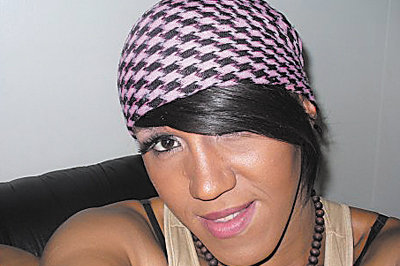While this Labor Day weekend will mark a symbolic end to the summer, it will also represent another more somber milestone for the local LGBT community.
On Sept. 3, 2012, Labor Day, Kyra Cordova was murdered in Frankford. The trans activist was shot in the head and her body left in a wooded area near Castor and Adams avenues.
One year later, her killer has yet to be apprehended, and there appears to be no new movement in the case.
Police spokesperson Lt. John Stanford told PGN that Homicide Capt. James Clark “didn’t have anything new to add to the case.”
“We’re still investigating, but there is nothing new,” Stanford said.
Police did not respond to requests for additional information about the investigation.
Investigators said in November that they had identified a person of interest, yet no further information was available and a suspect was never named.
“The waiting is horrible,” said Cordova’s mother, Dawn Maher. “Somebody in the neighborhood has to know. There has to be somebody that knows what happened. If they would just come forward, hopefully this person would go to jail. That’s the frustrating part: Somebody knows and they won’t say anything.”
Last fall, the city, and a community donor, offered a $25,000 reward for information leading to the killer’s arrest and conviction.
“It boggles my mind that even for $25,000 someone hasn’t come forward,” Maher added.
Elicia Gonzales, executive director of GALAEI: A Queer Latin@ Social Justice Organization — where Cordova previously worked — said the lack of an arrest is concerning on a number of levels.
“It’s scary because that means there’s still somebody out there who was able to commit this heinous crime and who is still walking the streets. Also frustrating is the lack of empathy and compassion that the family experienced, specifically from the police department who, in essence, said, ‘Take a number’ when asked about progress in the case,” Gonzales said, noting that the unsolved crime reflects systemic issues. “The police are part of a larger system that doesn’t affirm and celebrate marginalized communities. It’s a system-wide problem of not honoring, not celebrating, not ensuring that the lives of marginalized communities matter and that they need love, support and acceptance no matter what. The police are just a very visible manifestation of the invisibility experienced by trans communities.”
Gonzales was one of a number of community leaders, as well as Cordova’s family and friends, who joined Justice for Kyra to keep pressure on law enforcement to adequately investigate this case and work to prevent other crimes against marginalized communities.
Maher and other group members met with Police Commissioner Charles Ramsey in October. She said she last spoke with investigators working on her daughter’s case in May.
Maher said the detective was confident they had the right person in their sights, but told her they didn’t have enough evidence to make an arrest.
“I agreed that it was best to wait because if this person did murder her and gets acquitted or gets manslaughter, that could be a slap on the wrist,” Maher said. “I would rather wait and see if we can’t get him put away for murder.”
Maher said she and other supporters continue to distribute fliers in the neighborhood and often engage with passersby at a memorial garden they planted at the site where Cordova was found.
A group of Cordova’s childhood friends planned to visit the garden Aug. 30 to commemorate the upcoming anniversary, Maher said.
Getting to meet Cordova’s many friends and supporters in the LGBT community has been one of the few “bright spots” in the past year, Maher noted.
The relationships forged among Cordova’s family and the LGBT community have been integral in the healing process for many, Gonzales said.
“A lot of the Justice for Kyra group ended up being social support for Kyra’s family. Dawn lost a child. It’s one thing to be advocating broadly for the safety of trans individuals, but it’s another thing when the person you’re talking about happens to be a child,” she said. “That was one of the beautiful, indirect results of us coming together: We were able to form a community for Kyra’s mom, her aunt and her family and friends so that they felt supported and that everyone was able to grieve together. They were able to lean on us and honor their child for living.”
Maher said she has also taken comfort from a number of dreams that Cordova’s friends have had in the past year.
“There were about four or five of her friends who all had the same dream,” she said. “In each dream, there was a group of them laying in a bed like they used to do when they were young and just hanging out, and Kyra would be there. They’d say to her, ‘You can’t be here. This can’t be real,’ and she’d say, ‘Why can’t I?’ and they’d say, ‘Do you know what happened? You died.’ And she’d reply, ‘Yes, but I’m still here.’
“Mentally, I know a year has passed,” Maher continued. “I know it’s been a year, but it doesn’t always feel like it. Sometimes I can remember talking to her like it had been yesterday.”
